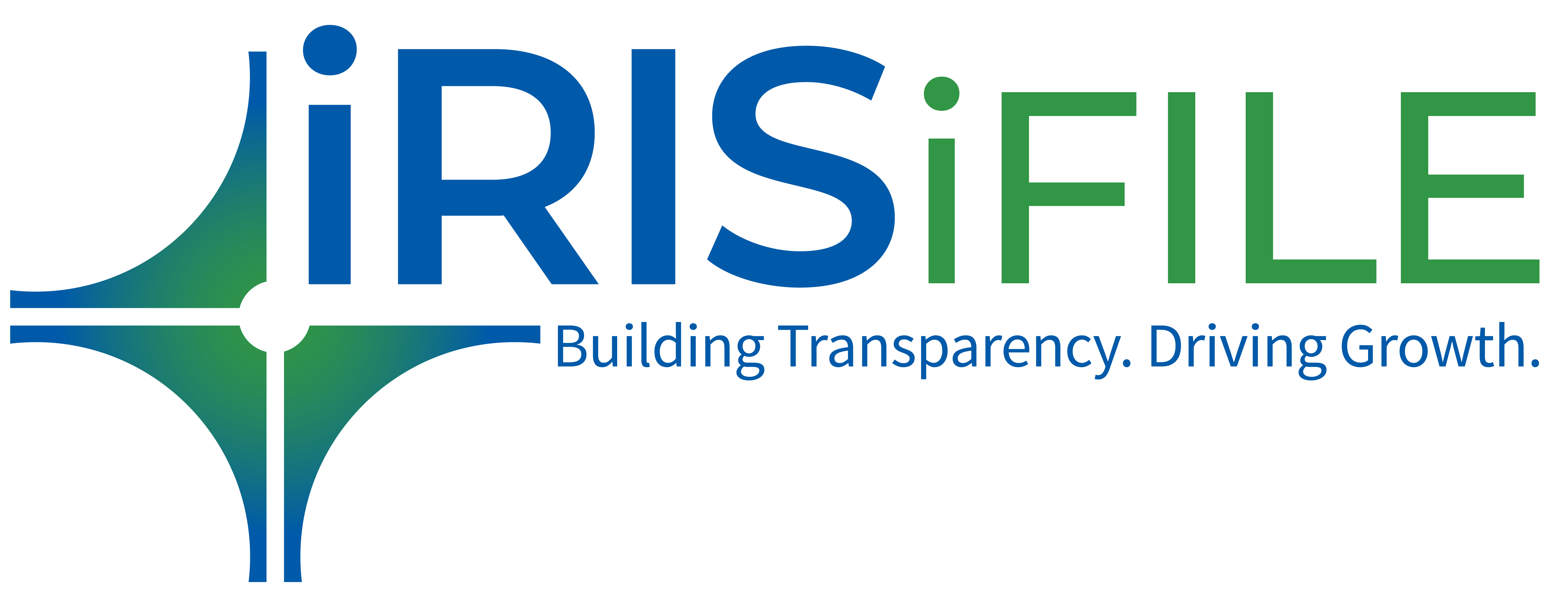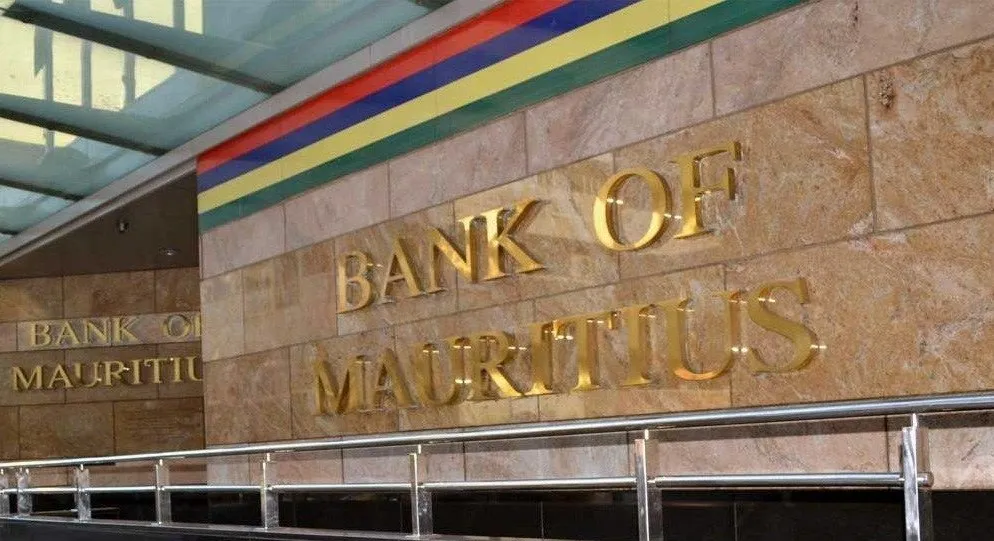The Bank of Mauritius is the Central Bank of the Republic of Mauritius. Established in 1967, the Bank is at the epicenter of the Mauritian financial system. It is committed to promoting and maintaining monetary and financial stability of the economy and aims to increase awareness and understanding of its activities and responsibilities, across both general and specialist audiences alike.
The Bank of Mauritius (BoM) embarked on their XBRL journey in 2014. It implemented a next generation e-filing system, powered by IRIS iFILE, for compliance reporting of all the entities under BoM’s jurisdiction which included banks, non-banking deposit taking institutions, money changers and cash dealers. The system also includes a Business Intelligence (BI) tool that creates standardized and custom reports for analysis of the data received from various banks.
Background
Prior to electronic filing, the regulated filers used to submit their filings to BoM in MS Excel spreadsheets via mail.
However, the process had the following inefficiencies:
- Lack of standardization leading to poor data quality: Due to the absence of any validation methods at the filer’s end, the data submitted was of poor quality. Also, MS Excel, despite its flexibility, added to the lack of standardization across the reporting framework.
- Inefficient method of submission: Since the filing was over email and not via a system, filers used to send multiple versions of data for the same reporting period leading to version issues. Submission over email also made it increasingly difficult to monitor the irregularity in filing of returns and take action against defaulters.
- Issues with data analysis: With all the filers submitting data in separate spreadsheets, it was difficult to search for and analyze data easily. Consolidating all the reports in one spreadsheet and deriving insights was a lengthy and time-consuming process with room for inaccuracies.
Due to all these issues, BoM decided to go in for an XBRL platform for receiving data from filers.
XBRL as a standard has in-built validation checks and business rules to generate clean and quality data. Additionally, the contextualization in XBRL makes data interactive and smart. Coupled with smart BI tools, users can prepare sophisticated reports to help them in evaluation and analysis.
The Solution
Bank of Mauritius partnered with IRIS for its XBRL implementation. The program that started in 2014 was implemented in six phases. While it currently covers 46 filing entities that submit around 92 forms to BoM, the system has been built for scalability and can accommodate additional filing entities and forms going forward.
The project was implemented in the following manner:
- Standard (XBRL) Taxonomy Development: Unique business concepts were identified on the basis of inputs received from filers. The concepts were studied from the perspective of ease of analysis (for BoM) as well as report generation (for filers) to finalize the business rules and validation checks. Related data sets were grouped into individual returns. The XBRL taxonomy was then built and rigorously tested before providing it to the business users along with a user guide.
- Data Preparation and Submission: Based on the developed taxonomy, IRIS iFILE was commissioned to enable filers to prepare returns and submit to BoM. IRIS iFILE is a combination of iFILE Client and iFILE Portal.
iFILE Client:
- Filers use iFILE Client to create and submit XBRL documents onto the iFILE Portal. It is an intelligent spreadsheet-based desktop application that helps entities to fill information as per the loaded taxonomy and create XBRL documents.
- An easy-to-use application, iFILE Client has an embedded XBRL validator that checks every document for errors based on custom-defined business rules before submission.
- With stringent validation checks, errors are prevented at the time of preparation itself, thus enabling clean and error-free
submission to the regulator.
iFILE Portal:
-
- BoM uses the iFILE Portal to collect, store and analyze submissions by filers. It also helps filers to retrieve filed data.
- Built with many important modules, it gives administrative authorities to the main users of the portal i.e., the BoM return owners.
- Modules like filing calendar, filing history and pending reports enable BoM to define the timeline for filings, provide users access to their historical filings and highlight consistent defaulters or late filers.
- The portal also has the embedded XBRL and business rules validators that enhance the quality of submissions.
- In addition to this, the portal has a sophisticated rendering engine to help retrieve data in a viewable format.
- Business Intelligence (BI): The BI tools were developed using the Oracle Business Intelligence Enterprise Edition (OBIEE) due to its flexibility and ability to generate reports, interactive dashboards, custom queries, notifications and alerts.
- Standard BI reports: These contain:
- Bank-wise consolidation, drill down and rollup reports
- Trends across time
- Graphs, charts, reports for monthly bulletin, and
- Reports for the website These reports get ready within a few minutes of the filing.
- Custom reports: Apart from pre-defined reports, the BI tool also gives flexibility to BoM to develop custom reports as and when required. The data filed by the entities is stored in a data warehouse in a structured format. With the integration of the BI tool with the iFILE portal, any custom report can be developed from the stored data in the required format and structure.
- Interactive dashboards: Dashboards designed Case study – Bank of Mauritius 3 specifically as per BoM requirements contain summarized reports of large volumes of data in rich visual formats such as bar graphs, line graphs, pie charts, trends, pivot tables etc. These dashboards provide a quick snapshot of many layers of data that have been consolidated and used in calculations to get the desired single screen output.
- Standard BI reports: These contain:
Post implementation, workshops were conducted for both filers and users of information. Filers such as banks, other deposit taking institutions, money changers and cash dealers were trained on the filing platform and the process. At the same time, users at BoM such as BI analysts and system administrators were trained to use the system and create custom reports.
- Automated Reporting Module (ARM) for Cash Dealers: The ARM module was developed for pushing all foreign money exchange transactions from the cash dealers’ servers to BoM’s servers automatically without human intervention. Once the data is pushed onto the BOM server, it passes through a set of business rules and alerts BoM users if any action is required.
- Setting up of Data Center and Disaster Recovery Center: This project was handled as a turnkey project and an entire data center with the requisite hardware was provided to BoM. All servers have been configured in high availability mode. Disaster recovery servers were also installed in BoM’s premises.
- Historical Data Migration: Another major activity taken up was migration of all historical data into the new XBRL data warehouse. Once this activity is completed, BoM will have all its historical and current data in a single data warehouse for analysis.
The Results
The implementation has empowered BoM to get rich quality data that is timely, accurate and easy to analyse from the filing entities. The system coupled with Business Intelligence (BI) tools provides standardized charts, custom reports and pre-designed dashboards helping easy analysis and review.
Few benefits that BoM has experienced post XBRL implementation are:
- Standardization of returns due to use of a global standard like XBRL.
- Validation checks at source as per business rules ensuring clean and quality data.
- The clean data, due to the contextualization within XBRL, is easier to consolidate and analyze.
- Single data repository at BoM from which data can be retrieved when required, in a format of choice.
- Ability to define definite filing window enabling better discipline. Additional monitoring capabilities help keep a track on revisions and delays by filers.
- Consistency in tagging filing entities with a unique code has led to standardization across departments when information is shared.
- Easier interdepartmental sharing of data, since all the data is available on one platform.
- BI tools provide easy analysis and quicker consolidation through readily available reports and dashboards.
- Ability to set up alerts and notifications in case set thresholds are crossed. This helps reduce action time which is high if one has to go through reports manually.
Another key benefit was that with XBRL in place, BoM had a ready base for Automated Data Flow (ADF). As part of ADF, all the banks will be required to implement an application that will create a centralized data warehouse for all data required by BOM. The application will then convert this data into XBRL and push it directly to BoM’s server without human intervention. This will help improve data quality and reduce data entry errors.
This XBRL implementation is the start of an ambitious journey that BoM has embarked on to have accurate, timely and clean data flow from the entities of the region. BoM has invested in a scalable model that is flexible enough to add as many returns and banks as required in the future. This is a strategic ‘future-proof’ data foundation and BoM is set to reap its benefits for years to come.
About Bank of Mauritius
The Bank of Mauritius was established in 1967 and is governed by the Bank of Mauritius Act 2004. It is the Central Bank of Mauritius and functions differently from commercial banks. It regulates and supervises the regulated banks as well as non-bank deposit taking institutions and cash dealers carrying on activities in, or from within, Mauritius. Moneylenders and certain credit unions also fall within their purview. The main role of the Central Bank of Mauritius is to maintain price stability and promote orderly and balanced economic development. The Bank issues currency and manages the foreign exchange reserves of Mauritius. It also advises the Government on monetary and financial matters.
Learn more about Bank of Mauritius at: http://www.bom.mu
About IRIS
IRIS Business Services Limited is a leading structured data solutions company with global presence in regulatory and compliance reporting software. The firm is uniquely positioned with offerings across the spectrum of creation, management and use of structured data in the realm of business and financial reporting. IRIS serves a client base that includes regulators in over a dozen countries around the world, leading banks, financial market intermediaries, consulting firms, financial printers as well as large and small enterprises. Our partner network includes large accounting firms, system integrators and specialized software and consulting firms that use IRIS’ products and expertise to enhance their offerings to end clients.
Learn more about us at: www.irisbusiness.com








